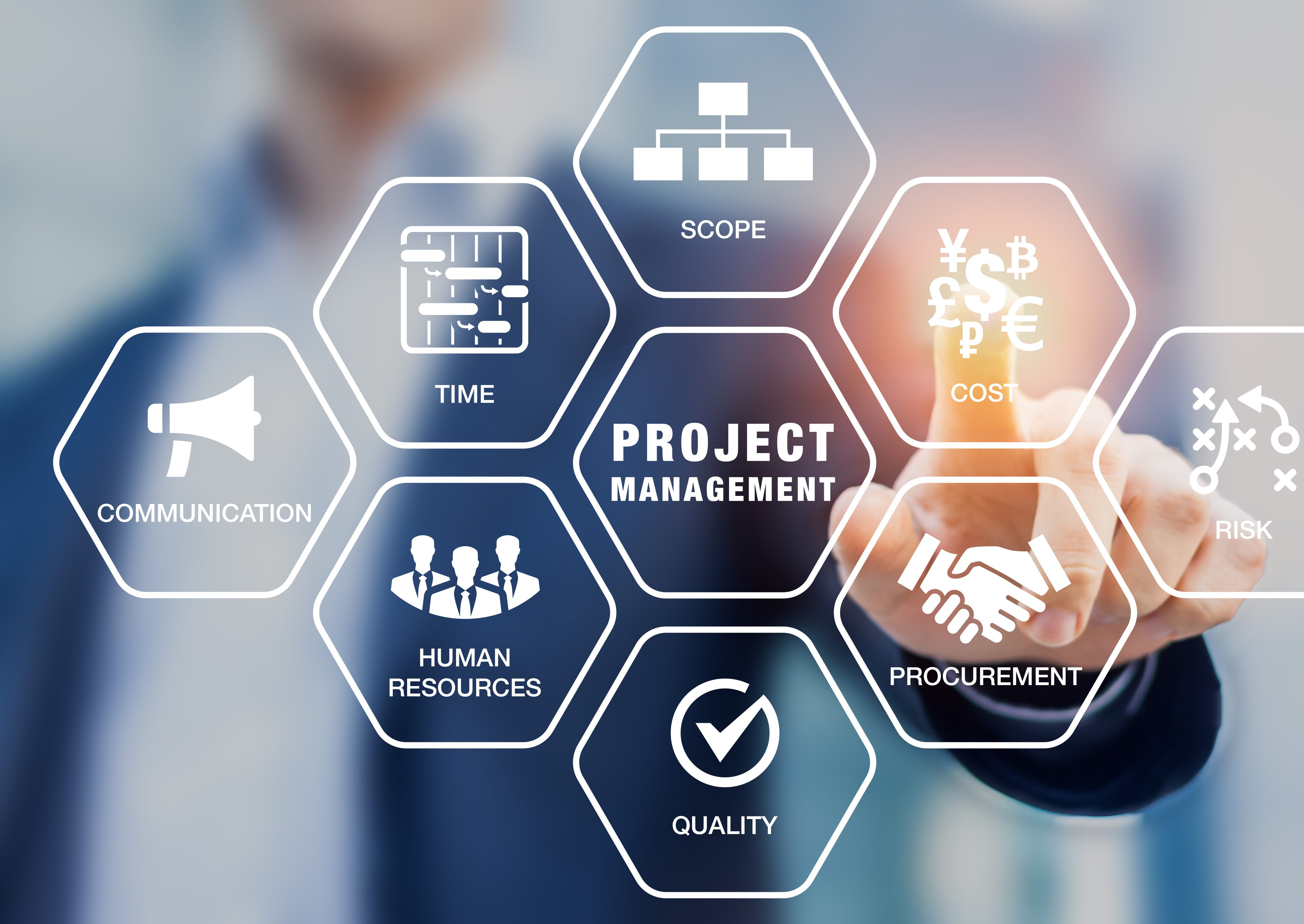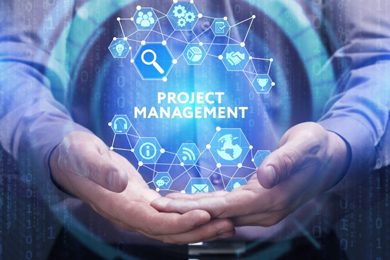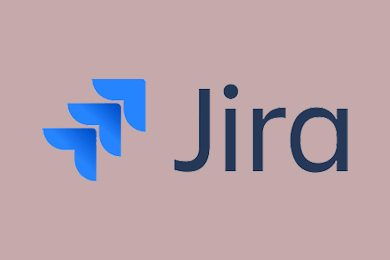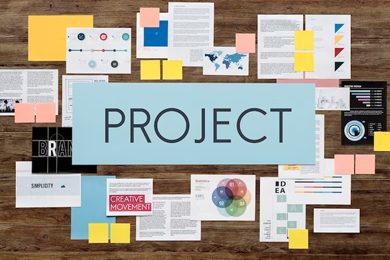This plan includes
- Limited free courses access
- Play & Pause Course Videos
- Video Recorded Lectures
- Learn on Mobile/PC/Tablet
- Quizzes and Real Projects
- Lifetime Course Certificate
- Email & Chat Support
What you'll learn?
- 1. Ability to demonstrate the formulas, charts, and theories of project management.
- 2. Calculate float for complex project network diagrams.
- 3. Memorize and use the formulas for earned value management.
- 4. Use the principles of Grateful Leadership and Emotional Intelligence to effectively lead your team to project success.
- 5. Develop robust communications management plan for different stakeholders.
- 6. Interface risk and earned value management to deliver successful project and business results.
Course Overview
If you are taking this course, you probably have some professional exposure to the duties of a project manager, or you may be considering embarking on a career in professional project management. Your ability as a project manager to demonstrate best practices in project management—both on the job and through professional certification—is becoming the standard to compete in today’s fast-paced and highly technical workplace. In this course, you will apply the generally recognized practices of project management acknowledged by the Project Management Institute (PMI) to successfully manage projects. Project managers who have proven skills and experience can find exciting, high-visibility opportunities in a wide range of fields.
This course is specifically designed to provide you with the proven, practical body of project management knowledge and skills that you need to demonstrate project management mastery on the job. Additionally, this course can be a significant part of your preparation for the Project Management Professional (PMP) Certification Exam and pass on your first attempt.
The first section covers fundamental and essential concepts on project management, which typically aligns with the PMBOK 6. In addition, there are supplementary materials on Grateful Leadership, Emotional Intelligence, Stakeholder Communications, Interfacing Risk and Earned Value Management among others to make you a T-shaped project professional.
Section 2 aligns with the new PMP Exams syllabus and covers all the tasks under the three domains: People, Process, and Business Environment.
In the third section, you get to test your readiness by taking two full PMP exam papers with detailed explanations. Additionally, there are Practice Tests and Case Studies under the first two sections. There are Domain and Task Specific Tests as well as Scenario Based Questions.
I strongly recommend you take these exams again and again until you can score 80% and over each time on the test.
PMP Tips and Tricks
There are tips and tricks for answering scenario-based questions in the PMP Exams, as well as for handling challenges encountered on projects.
Study Materials
You’ll have access to the course slides, articles, URLs that provide resourceful content for passing the PMP Exams, and for your professional development.
Ready?
Happy Learning!!!
Pre-requisites
- 1. Reliable internet connectivity.
- 2. Notebook & calculator
Target Audience
- 1. Project managers who are preparing to take and PASS their PMI PMP examination.
- 2. Project managers who need to earn PDUs.
Curriculum 121 Lectures 19:35:58
Section 1 : Introduction to PMI, PMP Credential, and The PMP Exams
- Lecture 2 :
- PMI and The PMP Certification-2
- Lecture 3 :
- About The PMP Exams
- Lecture 4 :
- PMP Application Requirements
- Lecture 5 :
- Nature of The Exam Questions
Section 2 : Professional and Social Responsibilities
- Lecture 1 :
- Introduction
- Lecture 2 :
- Code of Ethics
- Lecture 3 :
- Responsibility
- Lecture 4 :
- Respect
- Lecture 5 :
- Fairness
- Lecture 6 :
- Honesty
- Lecture 7 :
- Ensuring Individual Integrity
- Lecture 8 :
- Business Scenario
Section 3 : Project Management Framework
- Lecture 1 :
- Projects, Programs and Portfolios
- Lecture 2 :
- Project Life Cycle vs. Product Life Cycle
- Lecture 3 :
- Project Management Processes
- Lecture 4 :
- Agile Mindset
- Lecture 5 :
- Knowledge Check: Project Management Framework
- Lecture 6 :
- Role of The Project Manager
Section 4 : Project Integration Management
- Lecture 1 :
- Develop Project Charter and Project Management Plan
- Lecture 2 :
- Direct and Manage Project Work
- Lecture 3 :
- Manage Project Knowledge
- Lecture 4 :
- Monitor and Control Project Work
- Lecture 5 :
- Perform Integrated Change Control
- Lecture 6 :
- Business Scenario
- Lecture 7 :
- Close Project or Phase
- Lecture 8 :
- Business Scenario
- Lecture 9 :
- Knowledge Check: Project Integration Management
Section 5 : Project Scope Management
- Lecture 1 :
- Introduction: Project Scope Management
- Lecture 2 :
- Work Breakdown Structure (WBS)
- Lecture 3 :
- Plan Scope Management
- Lecture 4 :
- Business Scenario
- Lecture 5 :
- Requirements Traceability Matrix
- Lecture 6 :
- Define Scope
- Lecture 7 :
- Important Output of Project Scope Management
- Lecture 8 :
- Business Scenario
- Lecture 9 :
- Knowledge Check: Project Scope Management
Section 6 : Project Schedule Management
- Lecture 1 :
- Key Concepts
- Lecture 2 :
- Trends and Emerging Considerations, and Considerations for Agile Practices
- Lecture 3 :
- Project Schedule
- Lecture 4 :
- Network Diagrams
- Lecture 5 :
- Project Schedule Management Processes
- Lecture 6 :
- Sequence Activities
- Lecture 7 :
- Develop Schedule
- Lecture 8 :
- PERT: The Critical Path
- Lecture 9 :
- Determining The Critical Path 1
- Lecture 10 :
- Determining The Critical Path 2
- Lecture 11 :
- Determining The Critical Path 3
- Lecture 12 :
- The Critical Chain Method
- Lecture 13 :
- Knowledge Check: Project Schedule Management
Section 7 : Project Cost Management
- Lecture 1 :
- Cost Management Plan
- Lecture 2 :
- Trends and Emerging Considerations, and Considerations for Agile Practices
- Lecture 3 :
- Project Cost Management Processes
- Lecture 4 :
- Plan Cost Management
- Lecture 5 :
- Estimate Costs
- Lecture 6 :
- Determine Budget
- Lecture 7 :
- Reserve Analysis
- Lecture 8 :
- Funding Limit Reconciliation
- Lecture 9 :
- Control Cost- The Project Control Cycle
- Lecture 10 :
- Earned Value Management (EVM)
- Lecture 11 :
- EVM Illustration
- Lecture 12 :
- Business Scenario
- Lecture 13 :
- Knowledge Check: Project Cost Management
Section 8 : Project Quality Management
- Lecture 1 :
- Definition of Quality
- Lecture 2 :
- Quality Management
- Lecture 3 :
- Cost of Quality
- Lecture 4 :
- Trends and Emerging Considerations, and Considerations for Agile Practices
- Lecture 5 :
- Project Quality Management Processes
- Lecture 6 :
- Business Scenario
- Lecture 7 :
- Quality Tools
- Lecture 8 :
- Six Sigma: Philosophy and DMAIC Methodology
- Lecture 9 :
- Key Takeaways
- Lecture 10 :
- Knowledge Check: Project Quality Management
Section 9 : Project Resource Management
- Lecture 1 :
- Key Concepts, Trends and Emerging Considerations.
- Lecture 2 :
- Project Resource Management Processes
- Lecture 3 :
- Estimate Activity Resources
- Lecture 4 :
- Manage Team
- Lecture 5 :
- Team Dynamics
- Lecture 6 :
- Business Scenario
- Lecture 7 :
- Organizational Theories
- Lecture 8 :
- Knowledge Check: Project Resource Management
Section 10 : Project Communications Management
- Lecture 1 :
- Key Concepts: Communications Management
- Lecture 2 :
- Trends and Emerging Considerations, and Considerations for Agile Practices
- Lecture 3 :
- Communication Channels
- Lecture 4 :
- Project Communications Management Processes
- Lecture 5 :
- Manage Communications
- Lecture 6 :
- Knowledge Check: Project Communications Management
Section 11 : Project Risk Management
- Lecture 1 :
- Risk and Risk Management
- Lecture 2 :
- Trends and Emerging Practices
- Lecture 3 :
- Key Terminologies
- Lecture 4 :
- Calculation of Risk
- Lecture 5 :
- Risk Reserve
- Lecture 6 :
- Project Risk Management Processes
- Lecture 7 :
- Perform Quantitative Risk Analysis
- Lecture 8 :
- Negative Risk Responses
- Lecture 9 :
- Knowledge Check: Project Risk Management
Section 12 : Project Procurement Management
- Lecture 1 :
- What is a Contract?
- Lecture 2 :
- Characteristics of Contracts-1
- Lecture 3 :
- Characteristics of Contracts-2
- Lecture 4 :
- Centralized vs. Decentralized Contracts
- Lecture 5 :
- Type of Contract
- Lecture 6 :
- CPFF vs. CPPC
- Lecture 7 :
- CPFF and CPPC: Examples
- Lecture 8 :
- CPIF vs. CPAF
- Lecture 9 :
- Fixed Price Incentive Fee (FPIF)
- Lecture 10 :
- Point of Total Assumption (PTA)
- Lecture 11 :
- Cost Elements of an FPIF Contract
- Lecture 12 :
- Guaranteed Maximum Price (GMP)
- Lecture 13 :
- Difference Between GMP and Ceiling Price
- Lecture 14 :
- Key Terminologies
- Lecture 15 :
- Project Procurement Management Processes
- Lecture 16 :
- Knowledge Check: Project Procurement Management
Section 13 : Project Stakeholder Management
- Lecture 1 :
- Stakeholders: Who are they?
- Lecture 2 :
- Key Concepts: Stakeholder Management
- Lecture 3 :
- Classification Models for Stakeholder Analysis
- Lecture 4 :
- Stakeholder Engagement Assessment Matrix
- Lecture 5 :
- Stakeholder Management Skills
- Lecture 6 :
- Project Stakeholder Management Processes
- Lecture 7 :
- Manage Stakeholder Engagement
- Lecture 8 :
- Monitor Stakeholder Engagement
- Lecture 9 :
- Knowledge Check: Project Stakeholder Management
Our learners work at
Frequently Asked Questions
How do i access the course after purchase?
It's simple. When you sign up, you'll immediately have unlimited viewing of thousands of expert courses, paths to guide your learning, tools to measure your skills and hands-on resources like exercise files. There’s no limit on what you can learn and you can cancel at any time.Are these video based online self-learning courses?
Yes. All of the courses comes with online video based lectures created by certified instructors. Instructors have crafted these courses with a blend of high quality interactive videos, lectures, quizzes & real world projects to give you an indepth knowledge about the topic.Can i play & pause the course as per my convenience?
Yes absolutely & thats one of the advantage of self-paced courses. You can anytime pause or resume the course & come back & forth from one lecture to another lecture, play the videos mulitple times & so on.How do i contact the instructor for any doubts or questions?
Most of these courses have general questions & answers already covered within the course lectures. However, if you need any further help from the instructor, you can use the inbuilt Chat with Instructor option to send a message to an instructor & they will reply you within 24 hours. You can ask as many questions as you want.Do i need a pc to access the course or can i do it on mobile & tablet as well?
Brilliant question? Isn't it? You can access the courses on any device like PC, Mobile, Tablet & even on a smart tv. For mobile & a tablet you can download the Learnfly android or an iOS app. If mobile app is not available in your country, you can access the course directly by visting our website, its fully mobile friendly.Do i get any certificate for the courses?
Yes. Once you complete any course on our platform along with provided assessments by the instructor, you will be eligble to get certificate of course completion.
For how long can i access my course on the platform?
You require an active subscription to access courses on our platform. If your subscription is active, you can access any course on our platform with no restrictions.Is there any free trial?
Currently, we do not offer any free trial.Can i cancel anytime?
Yes, you can cancel your subscription at any time. Your subscription will auto-renew until you cancel, but why would you want to?
Instructor

1954 Course Views
1 Courses



 Tech & IT
Tech & IT
 Business
Business
 Coding & Developer
Coding & Developer
 Finance & Accounting
Finance & Accounting
 Academics
Academics
 Office Applications
Office Applications
 Art & Design
Art & Design
 Marketing
Marketing
 Health & Wellness
Health & Wellness
 Sounds & Music
Sounds & Music
 Lifestyle
Lifestyle
 Photography
Photography

















